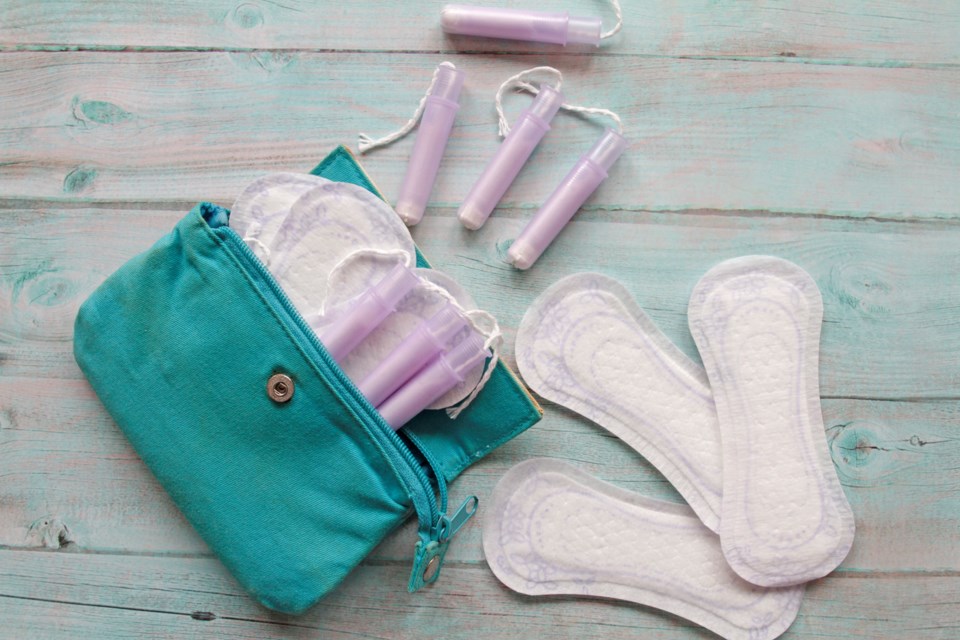The fight for menstrual equity in B.C. has come a long way, but should more accessible menstrual products come at the expense of health?
According to a survey from Plan International Canada, about 21 per cent of people who menstruate in Canada struggle to afford menstrual products because of expensive prices. Within British Columbia, half of the people who menstruate struggled to buy menstrual products at some point in their lives, according to minister of social development and poverty reduction Nicholas Simons.
As a result, the B.C. government is providing $750,000 to end period poverty and provide access to free menstrual products at schools, workplaces, pharmacies, government offices and other public spaces.
Susie Hewson developed the world’s first brand of organic and natural menstrual products in 1989. She's an advocate and campaigner for menstrual health and equity, providing women with organic, chlorine-free, plastic-free and biodegradable period products through her brand, Natracare.
Though Hewson supports accessible period products, she doesn't support the plastic that comes with it. "There has to be an offering to schools and colleges [and other public spaces] of an [environmentally-friendly] product and reusable product," she says. "So that we're not just dumping plastic into schools because it's cheap."
Lots and lots of plastic particles
Tampons and pads aren't necessarily associated with typical hard plastic, however, the products aren't so plastic-free up close.
The synthetic used in tampons and pads, polypropylene, looks like a non-woven fabric and feels like cotton, despite being plastic, according to Hewson.
Having helped create the organic standards for menstrual products, Hewson is well-informed on numerous facts and studies, one being a recent study done by Middlesex University that found that 12 out of 24 tampons tested contained plastics in direct contact with the vagina.
"Because of fibre loss, those fragmented fibres released up to 17 billion nanoplastic particles per tampon," says Hewson.
"They found between 25 and 48 complex chemicals that were leaching out of the single plastic [tampon] applicator," she continues. "We now know that plastics leach, they will break apart, and they will remain inside the vagina."
As for pads, Hewson reveals that there is an equivalent of about five plastic bags in a pack of pads. "Usually next to the skin there will be polyethylene or polypropylene, the core will be some pulp and some [binders]– super absorbants which are microplastics, and the backing would be polyethylene plastic."
Absence of evidence is not evidence of impact
Despite menstrual products being used worldwide in large amounts, Hewson says a toxicological analysis on long-term impact has never been done. "Absence of evidence is not evidence of no impact," she says.
Hewson encourages menstruating individuals to opt for organic cotton, chlorine-free, plastic-free and biodegradable products. Though there is no study on long-term effects of synthetic-based products such as lighter periods, she's heard and experienced first-hand the differences of switching to a plastic-free alternative.
"I have had many women tell me that their periods were less heavy," she says. "I have heard stories from women who say that when they stopped using a product that may be made of viscose or a mix of viscose and some cotton and changed to a 100 per cent organic cotton product, they noticed a difference."
Because of the lack of research, Hewson adds that though it may be an actual difference in synthetic versus organic cotton products, it may also be the relief of knowing about "the absence of highly absorbent synthetic fibres or the absence of perfumes or the absence of chemical lubricants as opposed to a tried and tested pure cotton product that doesn't contain those things," she explains.
Making organic options accessible
The fight for shelf space plays a big factor in which products are made accessible. "Big distribution is a big business; it's a big game," says Hewson.
Being a period product founder herself, Hewson is choosy with Natracare's distribution partners, despite being found in 80 countries around the world. She picks partners based on the company's values. In Canada, Richmond-based London Drugs is one of Natracare's biggest partners; both companies work towards menstrual equity and sustainability.
"Every year London Drugs partners with United Way on a one-for-one campaign," shares Hewson.
This year the campaign runs from May 27 to June 2 and with a purchase of a qualifying feminine hygiene product (including Natracare products), another product or the cost of another product will be donated to those in need across Western Canada. The campaign helped donate 93,000 period products in 2021.
With the help of the Canadian partner, Hewson continues to campaign for a world with plastic-free menstrual products that don't harm the body and the environment, and are accessible.





